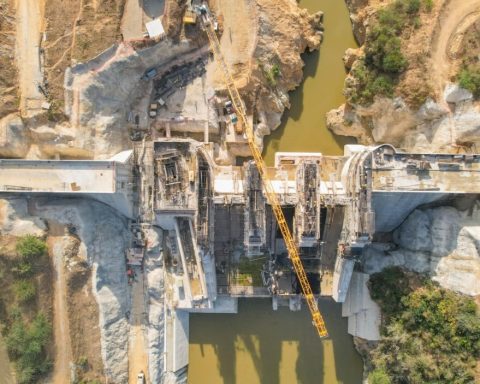Bernardo Batiz V.
AND
Last Tuesday, in the At the Casa de la Cultura Jurídica de Nuevo León, a forum was held regarding the project of reforms to the federal Judicial Branch; it was not organized by the Chamber of Deputies, nor by the Judicial Branch. It was basically organized by the active citizen group Visión Nuevo León and was attended by members of the local and federal judicial branches, militants of Morena and other groups; all in a personal capacity. Being present and participating was a good experience due to the freshness and spontaneity of the interventions, the debate and the participation of the attending public.
There were more than 100 attendees who not only asked questions to the speakers, but also gave opinions and presented specific cases in which they were personally or socially harmed by judicial decisions. Particularly noteworthy was the intervention of a former worker of the Monterrey Steel Fund, who recounted the abuses of which the workers were victims. First by the Executive Branch of the time and then by the unjust decisions of the Judicial Branch.
Reference was made, and I am interested in sharing it, to the statement by Minister Juan Luis González Alcántara, according to which the project under discussion was a response (or revenge) for the Supreme Court resolution that denied the possibility that the National Guard, as a discipline, depended on the Ministry of Defense; the truth is that there are already many, and not all recent, resolutions that have shown little social sensitivity and formal criteria aligned with globalization and neoliberalism.
I remember that due to the crisis arising from the approval of Fobaproa and the participation in the financial system of the so-called baggersthe Court validated compound interest, which is nothing other than the charging of interest on interest, which allowed so many abuses. Since the 12th century, Saint Bonaventure condemned compound interest as theft under the pretext of a contract. Nor is it forgotten that the Court refused the request for a popular consultation on the attempt to privatize oil, when it turned its back on more than 200 thousand signatures collected by the petitioners.
Recently, referring to the presidential proposal of February 5 of this year, former Argentine President Cristina Fernández de Kirchner also stated in this regard: It is downright revolutionary
; the definition may seem radical to some, but certainly, modifying the Judicial Power, both local and federal, means a historic, radical turn, it is a profound change with respect to a power that has clear differences with the Legislative and the Executive; these two are elected popularly and the Judiciary is not, to be president, deputy or senator, no specialization or professional degree is required; on the other hand, to be a judge or magistrate, the Constitution requires that they be legal professionals and have a judicial career; in addition, the other two powers have a certain number of holders, on the other hand the Judicial Power is constantly growing, the population grows and it is necessary to program new courts and new tribunals, because as the number of inhabitants increases, the number of conflicts and litigation increases.
For me there is no turning back: the decision to support the presidential proposal was made by the majority of the people with their vote; during the campaigns arguments were given for and against what was called the plan CI have no doubt that it will not be possible to turn back, as some would like. The reform is on its way.
I add that it is also, I don’t know if consciously or unconsciously, a legitimate defense; we have experienced in Latin America a form of coups d’état and regime changes, for which the executive powers were weakened through interventions by prosecutors and judges, overthrowing governments and changing political lines; it is a judicial activism, known in Mexico as strategic litigation
which has been used to try to hinder and prevent the works of the Executive Branch.
As a member of the Judicial Council, I was closely involved in the case of the injunctions filed against the Covid vaccination program. The Ministry of Health planned, as in the rest of the world, that children, who are the least vulnerable and have more defenses than adults, would be the last to be vaccinated. Strategic Litigation
organized an avalanche of injunctions, including those promoted through the Timely Notice
The only result was a bottleneck because there were so many injunctions for which the offices were not paid, that the district courts were overwhelmed and the procedures became complicated as a result of this strategy. It is not only a revolution, it is a defense of our government and our people against a new system of political attack.















